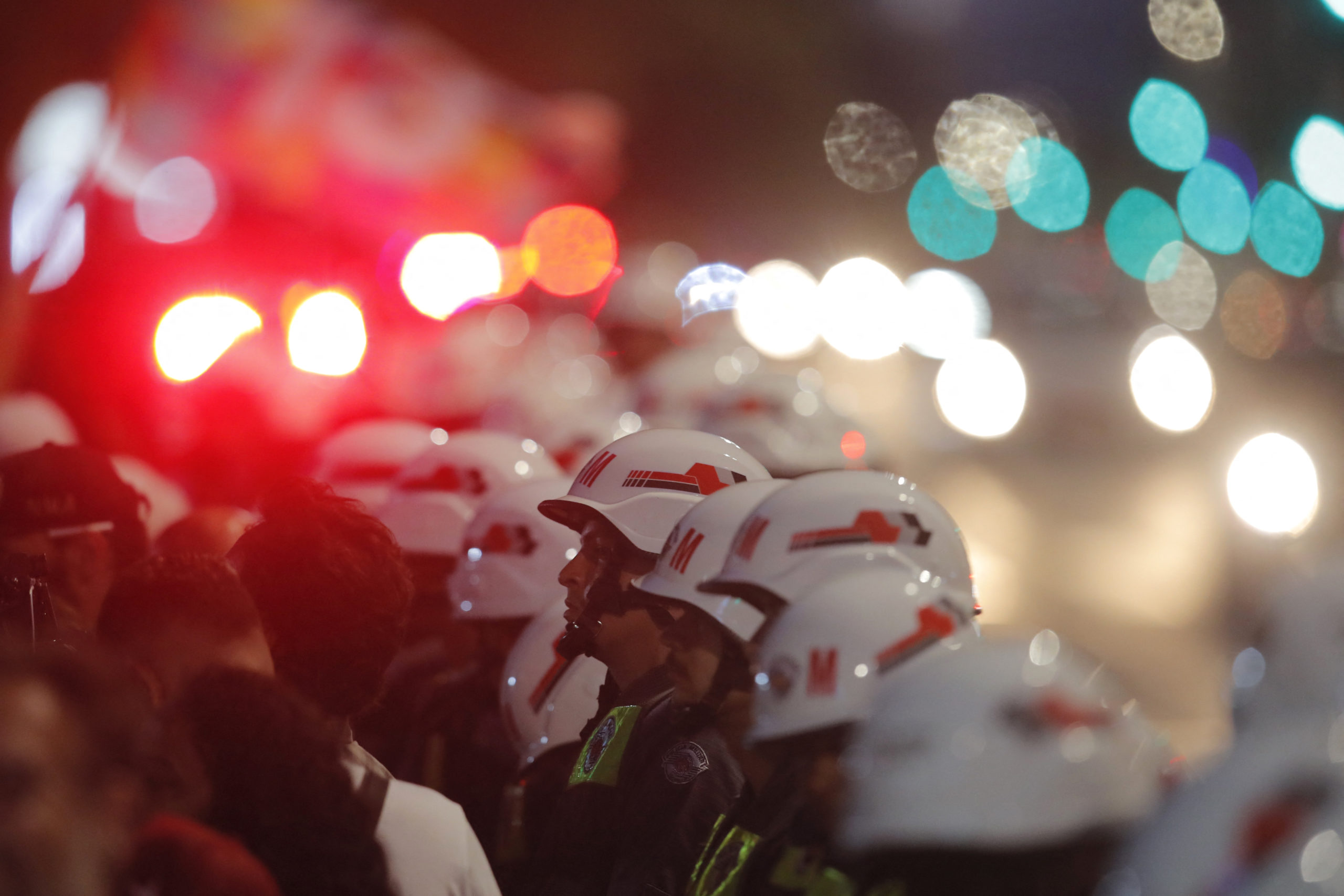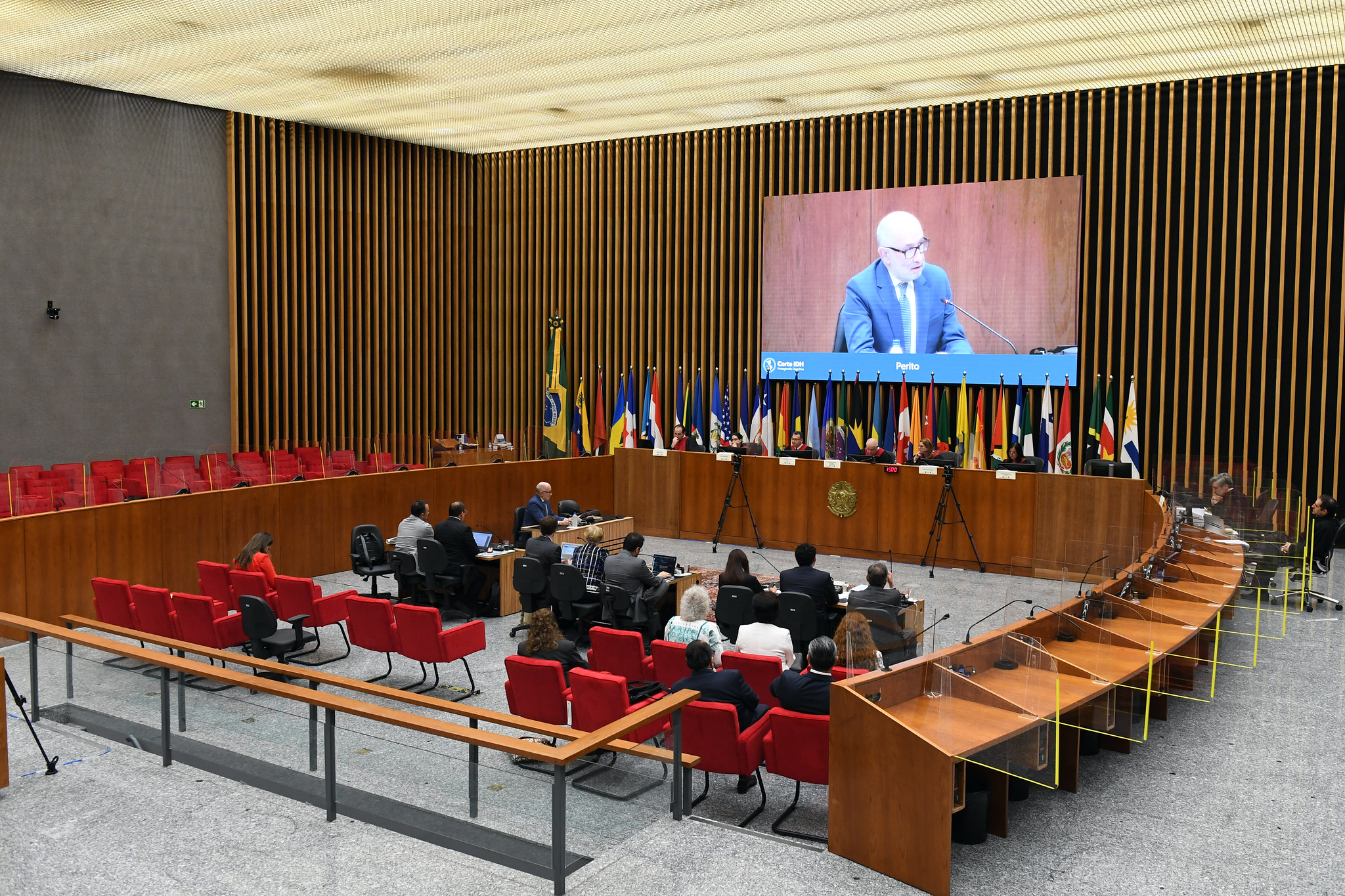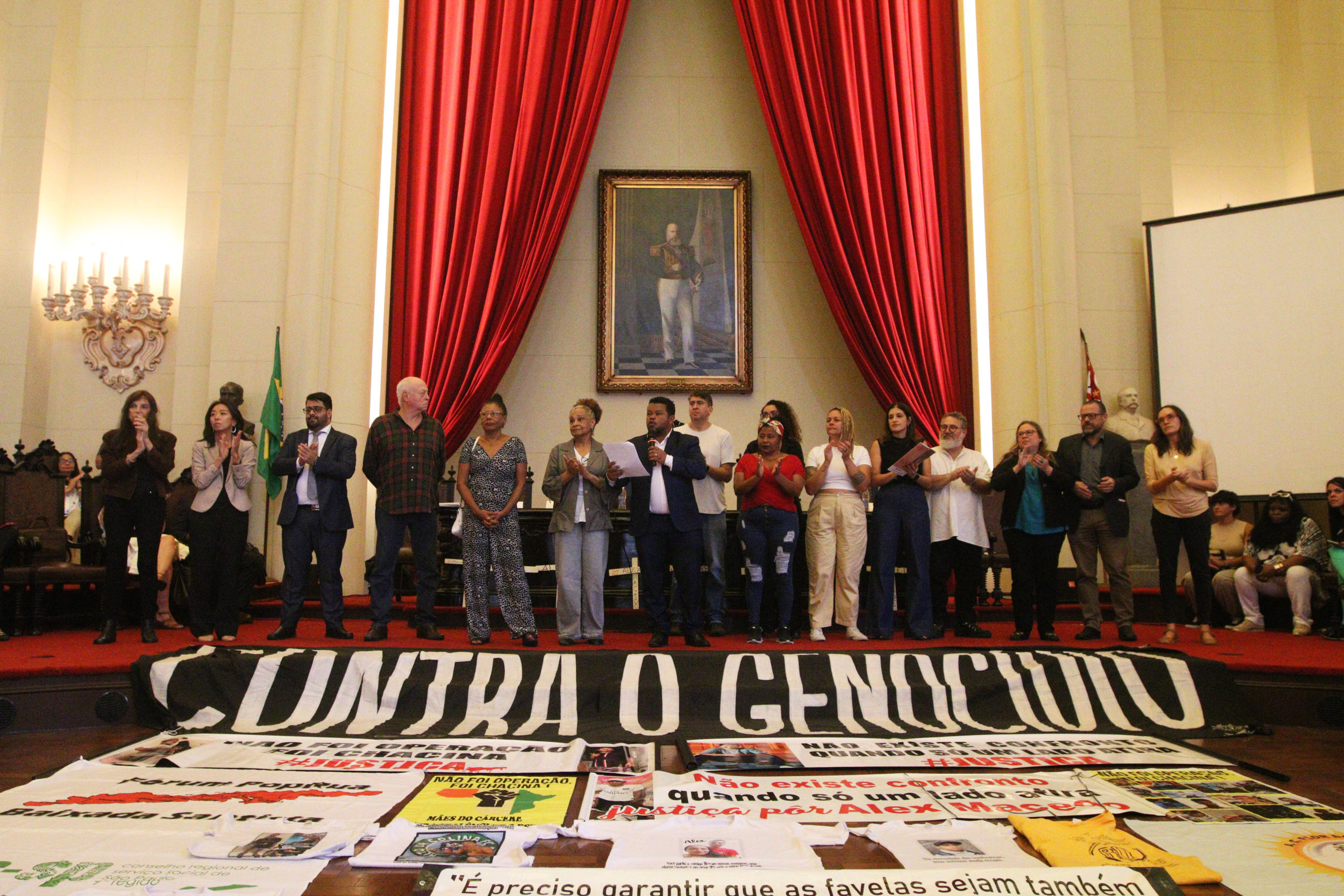Arms treaty
Brazil will not have right to vote at international conference on Arms Trade Treaty
 Although it is one of the world’s largest producers of small arms and light weapons, according to the Small Arms Survey, Brazil will play a supporting role in the discussions to set regulations and operational procedures for the Arms Trade Treaty (ATT) that will be held during the First Conference of States Parties to the ATT in Cancún, Mexico, from August 24 to 27.
Although it is one of the world’s largest producers of small arms and light weapons, according to the Small Arms Survey, Brazil will play a supporting role in the discussions to set regulations and operational procedures for the Arms Trade Treaty (ATT) that will be held during the First Conference of States Parties to the ATT in Cancún, Mexico, from August 24 to 27.
Since it has not yet ratified the treaty, the country will not have the right to vote, unlike the other 72 nations that are already party to the agreement. Brazil was one of the first countries to sign the treaty more than two years ago and, since June 2013, the internal ratification process has been ongoing.
The ATT is the first international instrument to regulate the global market of conventional weapons, a category that includes everything from tanks and fighter aircraft to light weapons such as revolvers, pistols, rifles and machine guns.
The agreement bans States from transferring these types of arms to nations that could use them to commit crimes against humanity, such as genocide, or gross violations of humanitarian law. The agreement also includes the need to analyze the risk of arms transfers causing gross human rights violations, being diverted to commit transnational crimes or being used to perpetrate gross violence against women and children.
“Currently, Brazil’s weapons export policy is regulated by a secret decree that dates back to the military dictatorship: PNEMEM – the National Export Policy for Military Equipment. The ratification of the treaty is a unique opportunity to guarantee more transparency in these transactions, thereby certifying that the country is not contributing to regimes that commit gross human rights violations,” said Camila Asano, coordinator of Foreign Policy at Conectas, who is accompanying the negotiations this week in Cancún.
“The delay by Brazil to ratify the treaty sends a message of political hesitancy and strips it of its ability to influence the definition of the operating rules, in addition to leaving it lagging behind other countries with major arms industries that figure among the top 10 exporters, such as the United Kingdom, France, Germany, Spain and Italy, which have already ratified the ATT,” said Atila Roque, executive director of Amnesty International Brazil.
Internal process
Brazil signed the ATT in June 2013, taking the first step in the ratification process. The treaty has already received the seal of approval of the ministries of Foreign Relations, Justice and Defense, and it is currently being analyzed by the Foreign Relations Commission of the Lower House of Congress. Next, it will proceed to the Public Security Commission and then to the Constitution and Justice Commission of the Lower House before being submitted to the Senate. Once approved in Congress, it will return to the Executive for ratification.
“The entry into force of the ATT is an historic milestone in the global control of arms. We have every expectation that the enforcement of the treaty will contribute quickly to reduce armed violence in the world. This is why it is essential for Brazil, which for decades has been trying to get a seat on the UN Security Council, to ratify the treaty as soon as possible,” said Ivan Marques, executive director of the Sou da Paz Institute.
Hearing in the Lower House
The Foreign Relations and National Defense Commission of the Lower House held a public hearing on August 13 to listen to experts on the Arms Trade Treaty.
The hearing was attended by members of academia and the Executive, represented by the ministries of Foreign Relations, Defense and Justice, which have already endorsed the approval of the treaty.
“The treaty is more like a minimum standard than a reference. It simply sets minimum requirements and each State can formulate [its own policy] based on these requirements,” explained Minister João Marcelo Galvão de Queiroz at the hearing. Queiroz is head of the Disarmament and Sensitive Technologies Division of the Ministry of Foreign Relations. “Brazil has always been sensitive to the harmful effects of illegal arms trafficking resulting from the limited degree of international regulation of the arms trade,” he added.
Ratification was also defended at the hearing by General Aderico Visconte Pardi Mattioli, representing the Ministry of Defense, and Federal Police Chief Tony Gean Barbosa, representing the Ministry of Justice.


